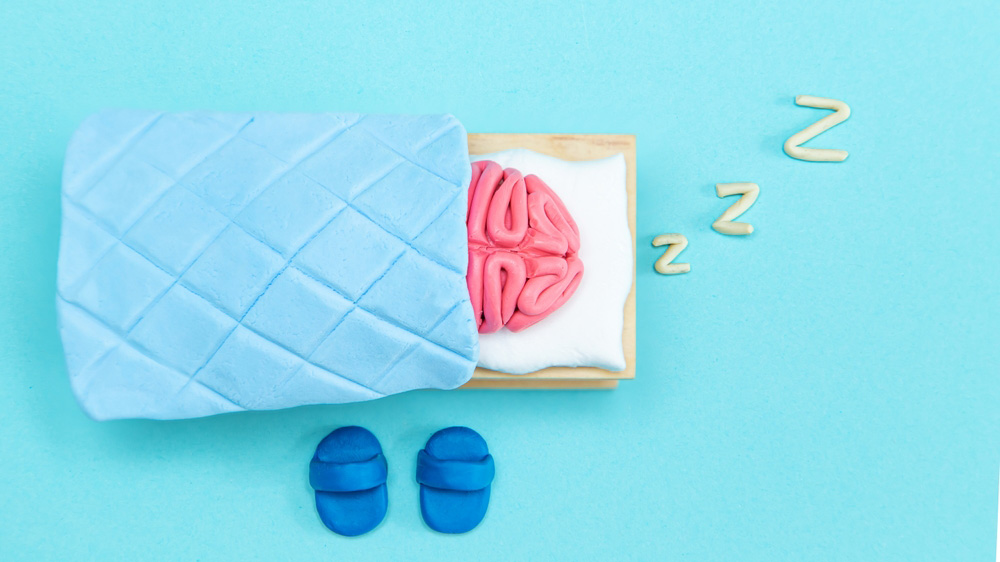Cognitive function is crucial for overall health, and sleep is an essential factor in optimizing it. Beyond providing rest, sleep acts as a powerful ally for both mental and physical health. In addition to regenerating our bodies, quality sleep improves cognitive function. Lack of sleep doesn’t just affect our mood; it weakens memory, reduces creativity, and even impacts physical health. Let’s explore how a good night’s sleep serves as a fuel for our cognitive abilities and vitality, and why depriving ourselves of sleep undermines our potential.
Sleep: The Foundation of Mental and Physical Balance
Science confirms that sleep is essential for proper brain function. Various sleep phases, particularly deep sleep and REM sleep, play distinct yet complementary roles in memory consolidation and information processing. Deep sleep is crucial for cellular regeneration, while REM sleep aids in organizing memories and stimulating creativity. Without these complete cycles, our brains lose clarity and efficiency.
Throughout the night, the brain passes through different sleep stages that allow it to process and integrate daily information. These stages strengthen neural connections, making memories more stable and facilitating learning. Research has shown that those who get enough sleep learn more easily and retain information better. In other words, sleep is the best “personal tutor” working for us while we dream!
Memory and Learning: The Role of Sleep in Cognitive Function
Sleep is directly linked to improving memory, particularly declarative memory (which helps us retain facts) and procedural memory (which helps us learn actions or habits). During sleep, the brain reviews and organizes the information absorbed throughout the day, discarding unnecessary details and strengthening relevant memories. This “sorting” process helps us access important information faster and makes learning easier.
A study conducted at the University of Geneva showed that participants who slept after a learning session retained more information. They also observed that during sleep, the brain replays the neural patterns activated during learning, strengthening memorization. It’s as if our brains are revising while we sleep, reinforcing the skills we acquired during the day.
Creativity Boosted by Sleep
Sleep, particularly REM sleep (where most dreaming occurs), is also crucial for creativity. This unique sleep phase allows the brain to form novel connections between pieces of information. Morning dreamers can attest: we often wake up with new ideas and solutions to problems that seemed unsolvable the night before. Scientists call this “incubation,” a process where the brain explores new paths during sleep.
On the other hand, sleep deprivation inhibits this ability. When we lack sleep, our brain’s flexibility and ability to think through multiple options deteriorate. It becomes harder to have “aha moments” or come up with innovative solutions. Sleep, then, is an accelerator of imagination—a creativity booster we can’t afford to ignore.
Sleep and Decision-Making
Have you ever noticed how much harder it is to make decisions when you’re tired? It’s not a coincidence. Sleep deprivation affects not only reaction times but also our ability to make rational decisions. Research conducted at Harvard shows that sleep deprivation slows down the brain’s executive function, reducing the ability to evaluate risks, control emotions, and focus on goals.
Sleeping enough also gives the brain the opportunity to organize and plan for the future. Certain parts of the brain, such as the prefrontal cortex, rest and recharge during sleep, allowing us to structure thoughts and be more pragmatic when we wake up.
Impact of Sleep on cognitive function
We can’t discuss cognitive function without considering its impact on physical health. Sleep plays a key role in the immune system and muscle recovery. A rested brain releases less cortisol, the stress hormone, which helps limit inflammation in the body and improve resistance to infections. Sufficient sleep also regulates metabolism, aiding weight management and providing energy for daily activities.
Athletes know that sleep is essential for enhancing performance. A study from Stanford University showed that athletes who increased their sleep duration saw improvements in speed, endurance, and even accuracy. This shows that strength is built not only in muscles but also in the mind!
The Circadian Rhythm: Synchronization and Balance
Our body follows a natural 24-hour cycle, known as the circadian rhythm. This cycle regulates sleep and wake times, as well as other biological functions like hormone production and body temperature. This rhythm is influenced by light and darkness, which is why maintaining a healthy lifestyle and sleep routine is important. Disruptions to this cycle, such as those caused by night shifts or excessive screen use before bed, disturb not only sleep but also hormonal balance and mood.
Good sleep quality and adherence to our circadian rhythm enable optimal brain function. Without it, concentration and alertness are affected, making tasks more difficult. Studies also show that misaligning this natural cycle increases the risk of chronic diseases like diabetes and heart disease. Aligning our habits with our internal clock is an asset for overall well-being.
Conclusion
Sleep is a vital resource that many underestimate. Far from just a period of rest, sleep is at the core of cognitive function, creativity, and physical health. By optimizing our sleep, we not only improve memory and learning capacity but also enhance emotional and physical well-being. It’s time to view sleep as an essential investment. After all, there’s nothing more powerful than a well-rested mind and body to face the challenges of each day.
Sources :
- Harvard Medical School – “Sleep and Mental Health: How Sleep Impacts Decision-Making“
- National Institutes of Health (NIH) – “The Impact of Sleep on Cognitive Functions“
- Stanford University – “Sleep and Physical Performance in Athletes“
- American Academy of Sleep Medicine – “The Connection Between Sleep and Physical Health“
- Centers for Disease Control and Prevention (CDC) – “Understanding Circadian Rhythms and Their Impact on Health“


